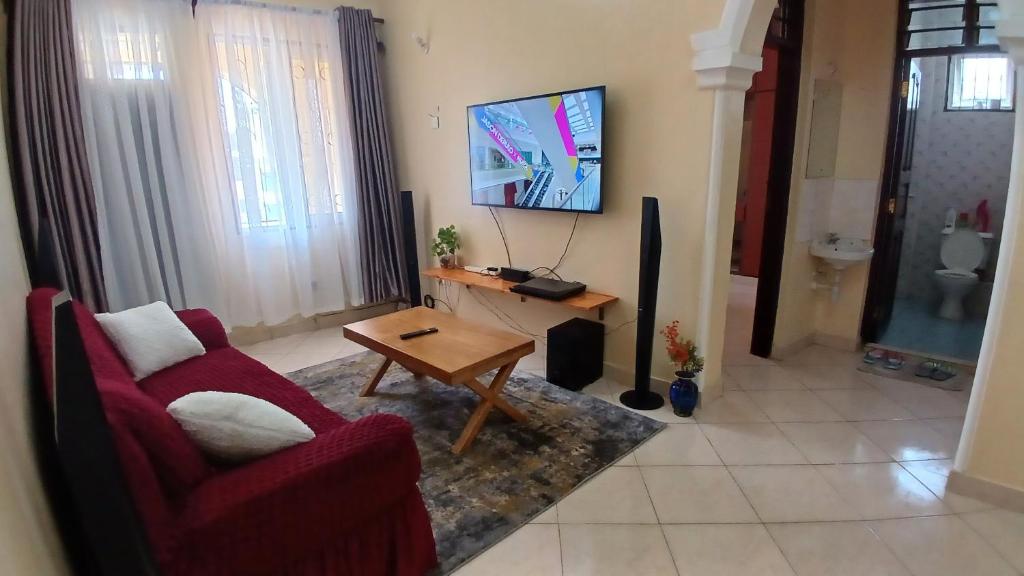Moving from one place to another can be an expensive and stressful experience, particularly in Kenya, where costs can add up quickly depending on the distance, mode of transportation, and volume of belongings. Whether you’re relocating your home or moving your business, reducing the cost of moving is a priority for most people.
In this guide, we’ll walk you through practical strategies that can help you reduce the overall cost of your move, without compromising the safety or efficiency of the process. From selecting the right movers to understanding how to pack efficiently, these insights will make your moving experience both cost-effective and seamless.
1. Plan Your Move in Advance
The first and most important step in cutting down moving costs is planning ahead. Most people underestimate the importance of early planning and find themselves scrambling at the last minute, which often leads to unnecessary expenses.
- Avoid last-minute bookings: Many moving companies in Kenya charge more for same-day or last-minute moves, particularly during peak moving seasons. Booking your movers at least a month in advance will not only give you a better price but also allow you to compare different companies.
- Schedule your move during off-peak times: Weekends and end-of-month periods are usually the busiest for moving companies. If possible, plan your move for the middle of the week or mid-month to avoid peak charges.
Additionally, when you plan ahead, you’ll have more time to shop around for better deals and pack strategically.
2. Declutter Before You Move
One of the best ways to reduce your moving costs is by reducing the number of items you need to move. The more belongings you have, the larger the vehicle you’ll need, and the longer it will take to pack and unpack.
- Sort your belongings: Go through each room in your house and separate items into categories such as “keep,” “donate,” “sell,” and “discard.” Items that are no longer needed but are in good condition can be donated to local charities or sold online via platforms like Jiji, or social media groups. The fewer items you move, the lower your transportation costs will be.
- Hold a garage sale or sell items online: Selling your unwanted items not only helps declutter but also gives you extra cash to cover moving expenses.
By moving fewer things, you’ll also save money on packing supplies and reduce the overall time needed for the move.
3. Compare Quotes from Multiple Moving Companies
Don’t settle for the first moving company you come across. Take the time to compare quotes from several movers in Kenya.
- Request quotes from at least three companies: This gives you an idea of the average cost of your move, and it might surprise you how much prices can vary. Be sure to provide each company with the same details about your move to ensure you’re comparing apples to apples.
- Ask about hidden costs: Some movers offer lower initial quotes, but they may tack on additional charges later for things like fuel, extra stops, or handling fragile items. Make sure you’re aware of all potential costs before committing to a company.
- Read reviews: In addition to price, check online reviews on platforms like Google, Facebook, and Yelp to ensure the company you’re considering has a good reputation. A cheap mover may not always be the best mover, especially if they handle your belongings carelessly.
Many moving companies also offer discounts for early bookings, so by comparing early, you can snag a better deal.
4. Use Affordable Packing Materials
Packing materials can be one of the biggest hidden costs of moving, particularly if you’re buying boxes, bubble wrap, and tape in bulk. Luckily, there are ways to pack on a budget.
- Use what you have: Start by using what you already own, such as suitcases, duffel bags, and storage bins. Soft items like clothes, towels, and bedding can be used to wrap fragile items like dishes and electronics, reducing the need for expensive bubble wrap.
- Get free boxes: Many stores give away cardboard boxes for free. Ask local supermarkets, electronics stores, or bookshops if they have any boxes they plan to discard. You can also look online—many community groups on social media have people giving away boxes after they’ve finished their own move.
- Buy second-hand packing materials: You don’t necessarily need to buy brand new packing supplies. You can find used moving boxes, bubble wrap, and other packing materials through online platforms or community groups.
- Recycle: Rather than buying new bubble wrap or paper, consider using old newspapers, magazines, or shredded paper for cushioning your items.
By cutting down on packing material costs, you can save thousands of shillings that would otherwise go to waste.
5. Pack Yourself
Hiring movers to pack your belongings can be convenient, but it comes at a significant cost. If you’re looking to reduce your moving expenses, take on the packing task yourself.
- Start packing early: If you do it gradually, packing doesn’t have to be an overwhelming task. Begin with items you rarely use and gradually pack the rest as your moving date approaches.
- Label your boxes: This will make it easier for you to unpack and organize in your new home, reducing the time movers spend handling your items.
- Pack strategically: Ensure that fragile items are packed securely with enough cushioning, but don’t overuse packing supplies unnecessarily. Heavy items like books should be packed in smaller boxes, while lighter items can go in larger boxes to avoid overloading.
6. Move During Off-Peak Hours and Days
Moving companies in Kenya often charge more during busy periods, such as weekends and public holidays, as well as at the end of the month when leases tend to end. To cut costs, schedule your move for a weekday or during the middle of the month when demand for moving services is lower.
- Consider early morning or late-night moves: If you’re flexible with your moving times, some movers may offer discounted rates for moves that take place early in the morning or late at night.
- Avoid last-minute moves: Moving companies tend to charge more for same-day or last-minute bookings, so plan ahead to secure a better deal.
By being flexible with your moving time, you could save a significant amount of money.
7. Enlist Help from Friends and Family
Instead of hiring movers, consider enlisting the help of friends and family. While this may not be a feasible option for everyone, it can save you money on labor costs.
- Ask for help with packing and unpacking: Many hands make light work, and having a few extra people to help pack and unpack can drastically reduce the time it takes.
- Borrow a truck or car: If you have a friend or family member with a pickup truck or large vehicle, see if they would be willing to help you move some of your belongings. This can reduce the need for hiring a moving truck.
Just be sure to show your appreciation by providing refreshments, lunch, or a small token of thanks for their assistance.
8. Move Some Items Yourself
If you have a personal vehicle, consider moving some of your smaller belongings on your own. This will help reduce the overall volume of items that the moving company needs to transport, lowering your moving costs.
- Move small, valuable items yourself: Fragile or expensive items, such as electronics, jewelry, or important documents, can be safely transported in your own vehicle. This will also reduce the risk of damage or loss during the move.
- Make multiple trips: If you’re moving a short distance, making multiple trips with your personal vehicle can save you money compared to hiring a larger truck.
While this approach may not be practical for long-distance moves, it can make a big difference for local relocations.
9. Consider Moving Insurance
While moving insurance may seem like an additional cost, it can save you a lot of money in the long run, especially if you’re moving valuable or fragile items.
- Check what your mover offers: Some moving companies include basic insurance in their quotes, but this might only cover a small portion of the value of your belongings. If you have expensive items, you might want to invest in full-value protection.
- Compare third-party insurance providers: If your moving company doesn’t offer sufficient coverage, you can also buy moving insurance from a third-party provider. While this adds to your upfront cost, it can save you from significant financial loss if anything is damaged or lost during the move.
10. Minimize Extra Services
Most moving companies offer additional services like packing, disassembly/reassembly of furniture, and storage. While these services can be helpful, they come at an additional cost. To save money:
- Disassemble your own furniture: Instead of paying movers to disassemble and reassemble your furniture, do it yourself. Make sure you keep track of all screws, bolts, and small parts.
- Handle your own storage: If you need storage for your belongings before or after the move, consider arranging it separately from your moving company. You may find more affordable options through independent storage facilities.
- Opt out of packing services: As mentioned earlier, packing your belongings yourself will save you a considerable amount.
Only opt for additional services when absolutely necessary.
11. Use a Cost-Splitting Strategy
If you’re moving a smaller load and you’re flexible with your timing, you might be able to split the cost of a moving truck with someone else who’s moving in the same direction.
- Look for shared moving services: Some moving companies offer shared truck services, where you share the truck with another customer moving in the same direction. This can significantly reduce the cost of transportation.
- Coordinate with friends or neighbors: If someone in your neighborhood is moving around the same time, consider coordinating your moves and sharing the costs of transportation.
While this approach may not work for everyone, it’s worth exploring if you have a smaller load or flexible moving dates.
12. Track Your Moving Expenses
Finally, tracking your expenses throughout the moving process can help you stay within your budget and avoid unexpected costs.
- Create a moving budget: Before you start the moving process, create a detailed budget that includes all expected costs, such as packing materials, moving services, and any additional services you may need. Stick to this budget as closely as possible to avoid overspending.
- Keep receipts for tax deductions: In some cases, you may be able to deduct moving expenses on your taxes, particularly if you’re moving for work. Be sure to keep all receipts and documentation of your moving expenses for tax purposes.
Conclusion
Moving in Kenya doesn’t have to be a wallet-draining experience. With a bit of planning, organization, and strategic decision-making, you can significantly reduce the cost of your move without sacrificing efficiency. From decluttering before you move to using free packing materials and comparing quotes from multiple movers, there are plenty of ways to save money during the moving process.
By following these tips, you can ensure that your move is as smooth and affordable as possible, allowing you to focus on settling into your new home or business location.



